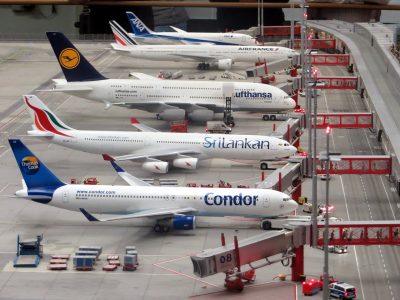Despite ongoing quality-control issues and regulatory barriers, Boeing (NYSE: BA) reported its best quarterly results since 2023, fueled by an increase in aircraft deliveries. The business is on track to become cash-positive before the end of the year, as evidenced by its $200 million cash burn in the second quarter, which was significantly less than Wall Street had anticipated. Boeing resumed production of 38 737 MAX aircraft per month, the maximum permitted by U.S. regulators, and delivered 150 commercial aircraft during the quarter, a significant increase over the previous year. “We won’t seek FAA approval to increase production to 42 jets per month until our internal performance metrics show that we’re ready,” said Chief Executive Kelly Ortberg on Tuesday.
Boeing to slow down expansion
During a call with analysts, Ortberg also mentioned that rework hours on the narrow-body jets, a crucial metric, are still higher than what the leadership desires. Due to ongoing design work on the engine’s anti-icing system, the company’s MAX 7 and MAX 10 variants won’t receive FAA certification until 2025. “This is a very delicate area that we’re dealing with around the inlet of the engines,” Ortberg said. “We still have more work to do.”
On Tuesday, Boeing’s stock dropped 4.4% to $226.08. Nevertheless, as investors regain faith in the company’s turnaround, the stock has risen roughly 28% so far this year.
Since a door plug on an Alaska Airlines 737 MAX aircraft blew out in mid-flight in 2023, raising fresh concerns about quality control, the company has been working to restore its reputation. To stabilize leadership, Ortberg has recently filled important executive positions in finance and defense. Simultaneously, Boeing and Trump administration representatives agreed to forego criminal charges associated with breach of a prior DOJ settlement concerning the fatal 737 MAX crashes in 2018 and 2019. A reputational overhang was lessened thanks to the agreement, which is pending judicial approval. Additionally, Boeing has benefited from geopolitical developments. New Boeing orders were accompanied by similar agreements with the UK and Indonesia, while a recent trade agreement with the EU guaranteed no tariffs on aircraft and parts.
Financial challenges still present
Boeing continues to face financial challenges despite its progress. The business has raised billions of dollars in equity to strengthen its balance sheet, but it hasn’t reported a full-year profit since 2018. Additionally, new dangers are appearing. Boeing’s defense unit faces the possibility of a strike as early as next week after nearly 3,200 union workers in the St. Louis area rejected the company’s contract proposal on Sunday.
Because the unit’s fragile recovery depends on the F/A-18 Hornet and other critical aircraft operating at a consistent rate, a strike could endanger it. Ortberg currently has a stronger hand thanks to Boeing’s financial recovery, but there isn’t much leeway.
Featured Image Credit: Quintin Gellar; Pexels: Thank You!















